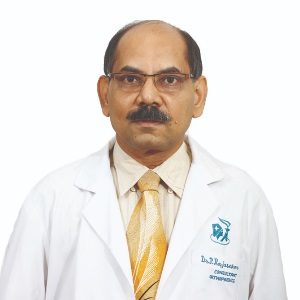Best Doctors in India for Alcoholic Hepatitis Treatment
- Neurologist, Chennai, India
- Over 34 years’ experience
- Apollo Hospitals Greams Road
Profile Highlights:
- Dr. Panneer A is one of the most renowned Neurologists in India with over 34 years of research and clinical experience in the field.
- Dr. Panneer A has great expertise in Migraine treatment and neurological disorders management.
- Opthalmologist, Chennai, India
- Over 26 years’ experience
- Apollo Hospitals Greams Road, Apollo Spectra Hospital Chennai-Alwarpet
Profile Highlights:
- Dr. Pratik Ranjan Sen is a specialist in Ophthalmology and serves as an Ophthalmologist – Consultant at Apollo Hospitals, Chennai.
- He has performed over 8000 Retinal detachment and other Vitreo retinal disorder surgeries.
- Dr. Pratik Ranjan Sen considers his profession a mission and is dedicated to his work. Due to this, he has gained enough trust and recommendations from his patients.
- Ophthalmologist, Chennai, India
- Over 21 years’ experience
- Apollo Hospitals Greams Road
Profile Highlights:
- Dr. Viswanathan P is one of the best eye surgeons in India having an overall experience of 21 years.
- He is a qualified doctor from the Tamil Nadu University of India and possesses a degree in MBBS and MS.
- One can visit him for routine eye check-ups or retina examinations and services like eye surgery, retina surgery, cataract surgery, etc.
- Pulmonologist and Respiratory Medicine Specialist, Chennai, India
- Over 33 years’ experience
- Apollo Hospitals Greams Road
Profile Highlights:
- Dr. Ilangho R P is one of the coveted pulmonologists in India from Chennai with about 33 years of experience in the field.
- He has achieved many prestigious positions in various national and international medical associations.
- His patients trust Dr. Ilangho for the most accurate diagnosis and the best care for respiratory diseases. He specializes in Decortication, Lung Surgery, and transplants.
- Pulmonologist and Respiratory Medicine Specialist, Chennai, India
- Over 25 years’ experience
- Apollo Hospitals Greams Road
Profile Highlights:
- Dr. Gayathri A R is one of the best pulmonologists in Chennai, with over 25 years of experience as a Respiratory Medicine Specialist.
- Dr. Gayathri has completed MBBS and MD from Tamil Nadu; and has a Fellowship from the College of Chest Physicians, USA.
- Dr. Gayathri was in the management of a Heart-Lung Transplant Recipient and holds membership in a couple of medical associations.
- She has published 20 papers and delivered 36 guest lectures to date.
- Rheumatologist, Chennai, India
- Over 22 years’ experience
- Apollo Hospitals Greams Road
Profile Highlights:
- Dr. V V Kaushik is an accredited Rheumatologist in Chennai with substantial experience internationally.
- Dr. Kaushik had his initial experience in Internal Medicine and later completed training in Rheumatology at the Royal Liverpool University Hospital.
- He has published his work in prominent Indian and International journals.
- Radiation Oncologist, Chennai, India
- Over 32 years’ experience
- Apollo Cancer Centre, Apollo Hospitals Greams Road
Profile Highlights:
- Dr. Rajendran B has developed expertise in the treatment of conditions like Cancer and Central Nervous System Tumors.
- He has studied radiotherapy and was recognized as the first oncologist to perform radiosurgery in Northern Malaysia in 2008.
- Dr. Rajendran takes interest in engaging in social groups related to his field and holds Indian Medical Association (IMA) membership.
- Orthopedic Surgeon, Chennai, India
- Over 24 years’ experience
- Apollo Hospitals Greams Road
Profile Highlights:
- Dr. Rajasekar P is an experienced orthopedist with 24+ years of experience.
- He treats and consults patients with problems with Joints, fractures, osteoporosis, Spine injuries, etc.
- He is an MBBS and DNB qualified doctor and practices at Apollo hospitals of Chennai.
- Orthopedic Surgeon, Chennai, India
- Over 50 years’ experience
- Apollo Hospitals Greams Road
Profile Highlights:
- Dr. Uma Chandran S specializes in orthopedics and is a veteran surgeon at Apollo Hospitals of Chennai.
- He has spent more than 50 years in the field of orthopedics and is believed to be one of the best orthopedists in Chennai.
- He is also known for his expertise in bone replacement surgery, spine movement, fracture treatment, etc.
- Surgical Gastroenterologist, Chennai, India
- Over 41 years’ experience
- Apollo Hospitals Greams Road
Profile Highlights:
- Dr. Bala Chandran T G is a veteran gastroenterologist with over 41 years of experience.
- Apart from completing his MBBS, MS, and MCh, he has done a fellowship from the Royal College of Surgeons of Edinburgh, the UK.
- He obtained training in laparoscopic techniques from Ethicon Endosurgery Institute, Mumbai.
- Dr. Bala Chandran T G has done much research, authored, and published several articles in many publications.
Best Hospitals in India for Alcoholic Hepatitis Treatment
ALCOHOLIC HEPATITIS
Alcoholic hepatitis is a liver infection, which is mainly caused by frequent, heavy use of alcohol. Fat can build up in the liver cells, which might lead to inflammation as well as scarring of the liver.
Alcoholic hepatitis might be mild or severe. A patient might even need a liver transplant if proper treatment is not provided, or if they don’t stop consumption of alcohol.
It is also notable that all heavy drinkers don’t develop this condition, and sometimes this condition even develops in people who drink moderately. However, if you are diagnosed with this condition, it is important for you to quit drinking alcohol. People who continue drinking alcohol might face a huge risk of serious liver damage as well as death.
Symptoms
Depending on the amount of damage to the liver, the symptoms can vary. If you are having a mild form of the disease, you might not even experience any symptoms at all. However, as the damage continues to grow, you might experience the following:
- Changes in appetite
- Dry mouth
- Weight loss
- Pain or swelling in the abdomen
- Jaundice, or yellowing of the skin or eyes
- Fever
- Nausea and vomiting
- Easy bleeding or bruising
- Changes in your mental state, including confusion
- Fatigue
The symptoms of this condition are similar to those caused by a few other health conditions. Therefore, if you develop any of these symptoms, it is best to get a proper diagnosis as well as begin treatment.
Causes & risk factors
Alcoholic hepatitis generally develops when the alcohol you drink causes damage to your liver. However, it is not clear why alcohol does this damages only to some heavy drinkers.
Few factors that are known to play a role in this condition include:
- The body’s process that breaks down alcohol produces some toxic chemicals
- These chemicals can trigger inflammation that can destroy the liver cells
- Thus, over time, scars replace healthy liver tissue, thus interfering with the function of the liver
- This irreversible scarring, which is also termed cirrhosis, is the final stage of alcoholic liver disease
If you have hepatitis C and continue to drink, even moderately, you are more likely to develop cirrhosis.
Some heavy drinkers are also malnourished because they don’t eat a proper balanced diet. Alcohol and its byproducts also prevent the body from absorbing nutrition properly. Lack of nutrition can contribute to liver cell damage.
Some other risk factors that can lead to this condition include:
- Your sex- Women are usually at a higher risk of developing alcoholic hepatitis since the way alcohol is processed in women is different.
- Binge drinking- Having over five drinks within two hours for men and four or more for women can increase the risk of alcoholic hepatitis.
- Obesity- Heavy drinkers who are overweight are also more likely to develop alcoholic hepatitis and to progress from that condition to cirrhosis.
- Race and ethnicity- Hispanic and Negroid people might be at higher risk of alcoholic hepatitis.
- Genetic factors- According to studies, there may be a genetic component in alcohol-induced liver disease. However, it is difficult to separate genetic and environmental factors.
Diagnosis
If you are showing symptoms of alcoholic hepatitis, your doctor will first inquire about your medical history and alcohol consumption. Next, he/she will perform a physical exam to see if you have an enlarged liver or spleen. They might also need a few more tests to confirm your diagnosis, such as:
- Complete blood count (CBC)
- Liver function test
- Ultrasound of the liver
- Abdominal CT scan
- Blood clotting tests
In some cases, a liver biopsy might also be needed to confirm the diagnosis of alcoholic hepatitis. A liver biopsy requires your doctor to remove a tissue sample from your liver, which is then tested in the lab. This method helps to show the severity and type of liver disease.
Treatment
Stopping alcohol consumption is the most important treatment for alcoholic hepatitis. There is no cure for this condition, but treatment can help in reducing or eliminating symptoms, or stopping its progression.
It is also important to note that scarring of the liver is permanent, but treatment can aim to restore as much function as possible.
Dietary changes
Medication
Liver transplant
The best hope of recovery is to be aware of the signs and symptoms as well as to reduce, manage, or if possible, completely stop consumption of alcohol.
Complications
Alcoholic hepatitis might lead to severe other complications such as:
- Enlarged veins (varices)- In this condition, blood that is unable to flow freely through the portal vein, can back up into other blood vessels in your esophagus or stomach.
- Hepatic encephalopathy- This condition can be caused by the buildup of toxins if your damaged liver is unable to remove all the toxins from your body. It involves confusion, drowsiness, and slurred speech.
- Ascites- Ascites is a condition in which the fluid that accumulates in the abdomen may get infected and thus, require treatment with antibiotics. Although this condition is not life-threatening, it can be a sign of advanced alcoholic hepatitis, or cirrhosis.
- Kidney failure- A damaged liver affects blood flow to the kidneys, thus resulting in kidney failure.
- Cirrhosis- The scarring of the liver might lead to liver failure.
Prevention
Alcoholic hepatitis might be prevented if you take the following steps:
- Drink alcohol in moderation, if at all- For healthy adults, moderate drinking means no more than one drink a day for women of all ages and men older than 65, and not over two drinks a day for men aged 65 and younger. However, if you prevent all alcohol, it is a certain way to prevent this condition.
- Check before mixing medications and alcohol- Ask your doctor if it’s safe to drink alcohol while you are taking medications. Consider reading the warning labels on over-the-counter medications as well. Don’t drink alcohol when you are taking medications that warn of complications when combined with alcohol.
- Protect yourself from hepatitis C- Hepatitis C is an infectious liver disease that is caused by a virus. If it is left untreated, it may lead to cirrhosis. If you are having hepatitis C and you consume alcohol, you’re generally more likely to develop cirrhosis than if you don’t drink.















